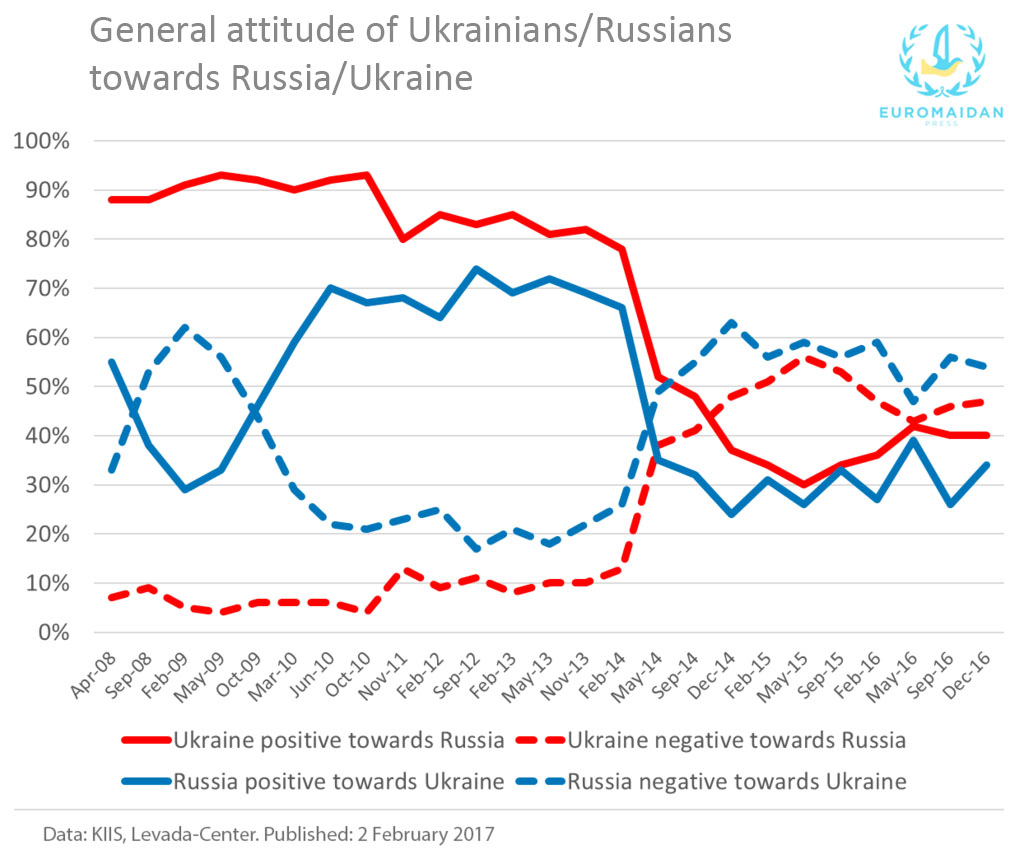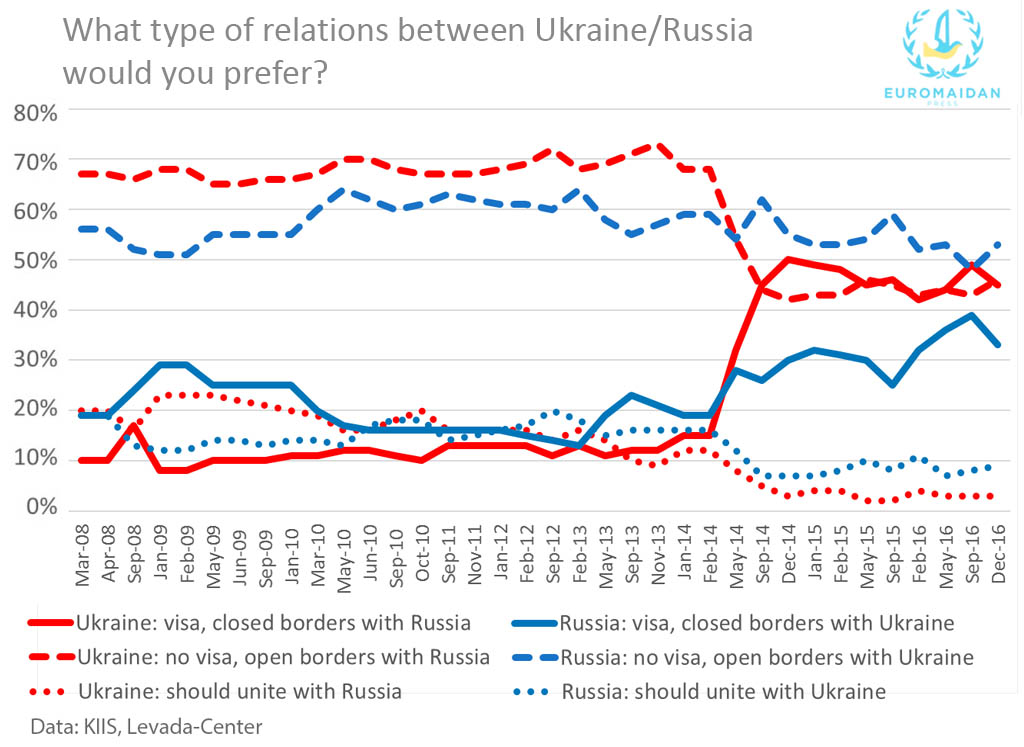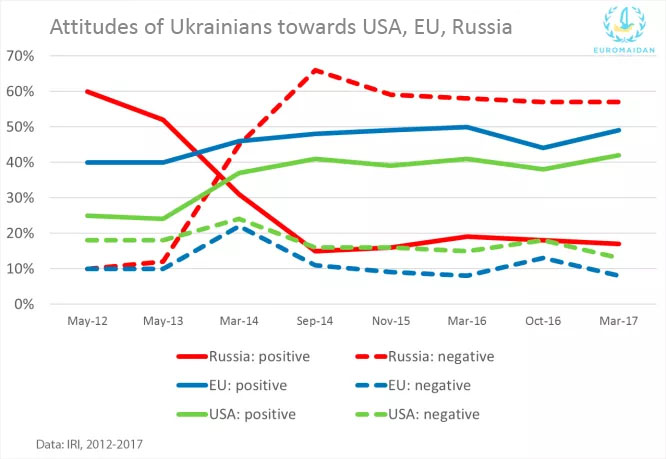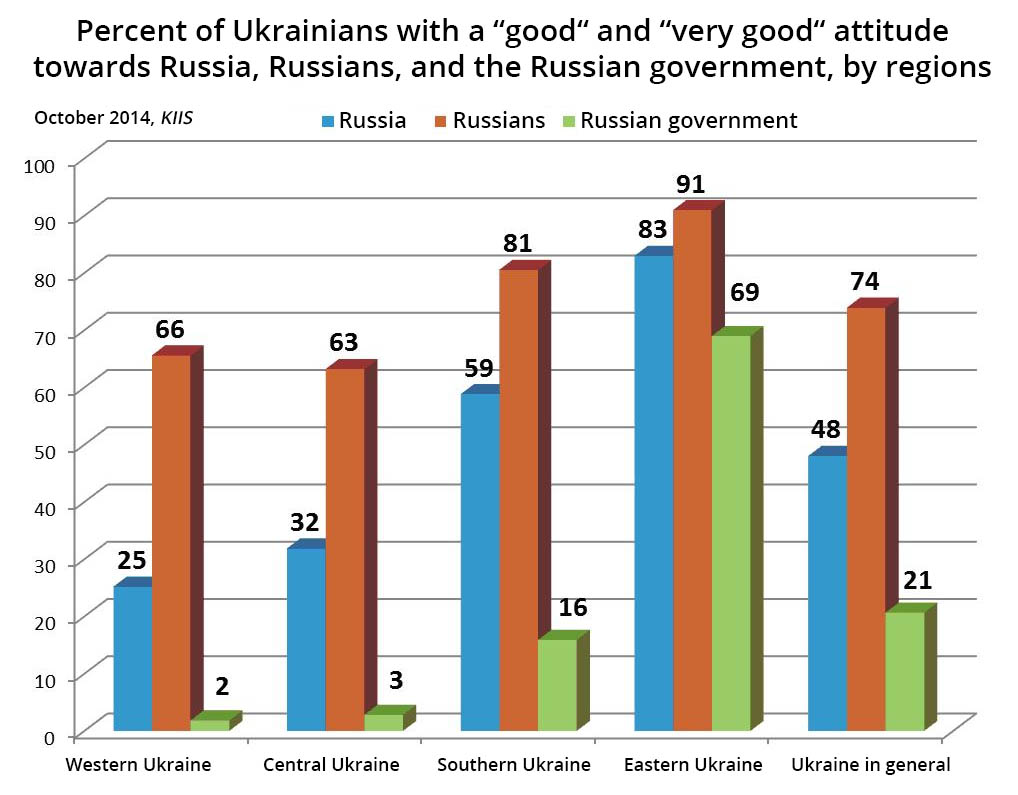Three years into the de facto war of Russia against Ukraine, the overall attitudes of Ukrainians towards Russia, the aggressor country, is better than the overall attitudes of Russians towards Ukrainians, the country which is being attacked.
These are the findings of a joint project by the Levada-Center and KIIS (Kyiv International Institute of Sociology) to monitor the mutual attitudes of Ukrainians and Russians towards each others' countries.
According to its results, in December 2016, 54% of Russians felt negatively towards Ukraine and 47% of Ukrainians felt negatively towards Russia. Before Euromaidan, Russia's occupation of Crimea, and covert war in Donbas, up to 95% of Ukrainians experienced positive attitudes towards Russia, and up to 74% of Russians felt positive towards Ukraine. Relations between the two countries flipped after the occupation of Crimea in March 2014 and continue to stay low, although, paradoxically, Ukrainians are of a better opinion towards Russia than Russians towards Ukraine.

Russians still want an open border with Ukraine, Ukrainians are not so sure about it
Most Russians still want to see Ukraine a friendly state with no visa, no customs, and with open borders. Meanwhile, 45% of Ukrainians want closed borders and a visa regime with Russia, but 46% still want open borders and visa-free status quo with Russia.

Read also: USA and Ukraine are Russia’s top-2 enemies, new Levada poll shows
These findings contrast results from other pollsters
The results of the joint KIIS - Levada-Center project contrast with survey results of the International Republican Institute (IRI). The IRI's 2017 annual public opinion survey of Ukrainians revealed that 17% of Ukrainians had a warm attitude towards Russia, while 57% felt "cold" or "very cold. That is a big change from a similar IRI survey published on May 2013, prior to the events of Euromaidan, when 52% or respondents reported warm feelings towards Russia, 42% - warm feelings towards Poland, and 40% - warm feelings towards the EU.

Why are there such big differences in the results of the surveys by IRI, which showed that 17% of Ukrainians had "warm attitudes" towards Russia in 2017, and KIIS, with its 40% having a positive attitude towards Russia?
Quite likely, the devil is in the details. The October 2014 KIIS survey included three options for Ukrainians to express their opinions towards Russia: either Russia itself, the Russians, or the Russian government (further surveys left only the option of attitude towards "Russia itself"). It revealed that in all regions, the opinions of Ukrainians towards Russians themselves were positive, while the attitude towards the Russian government, except in eastern Ukraine, was negative. An IRI survey conducted during September 2014 showed that 15% of Ukrainians were positive towards Russia, a figure comparable to the October KIIS survey with its 21% having a good attitude towards the Russian government.

Therefore, it's safe to assume that the results of opinion polls regarding the attitudes of Ukrainians towards Russia will be greatly influenced by whether the question concerns attitudes towards the Russians themselves or the Russian government. It's possible that the questions of the KIIS and IRI polls were nuanced so that the respondents perceived them differently, leaning towards one of the two options.
We have previously written about the importance of the image of an "enemy," which allows mobilizing the nation around a military leader, for Russia. On the third year of Russia's hybrid war against Ukraine, the Russian propaganda machine has succeeded in more Russians being convinced that the victim is the enemy than Ukrainians being sure that their aggressor is the enemy.


